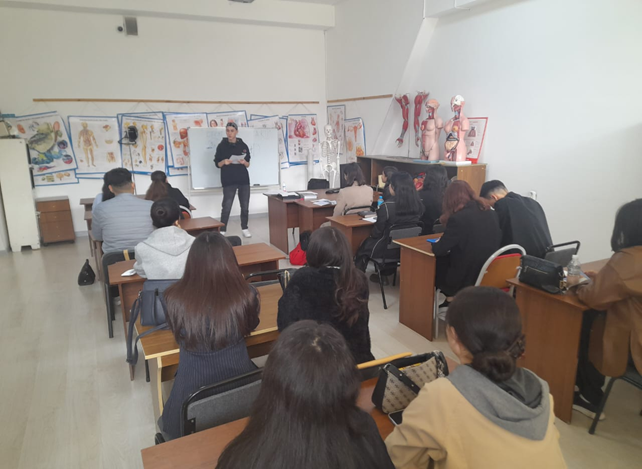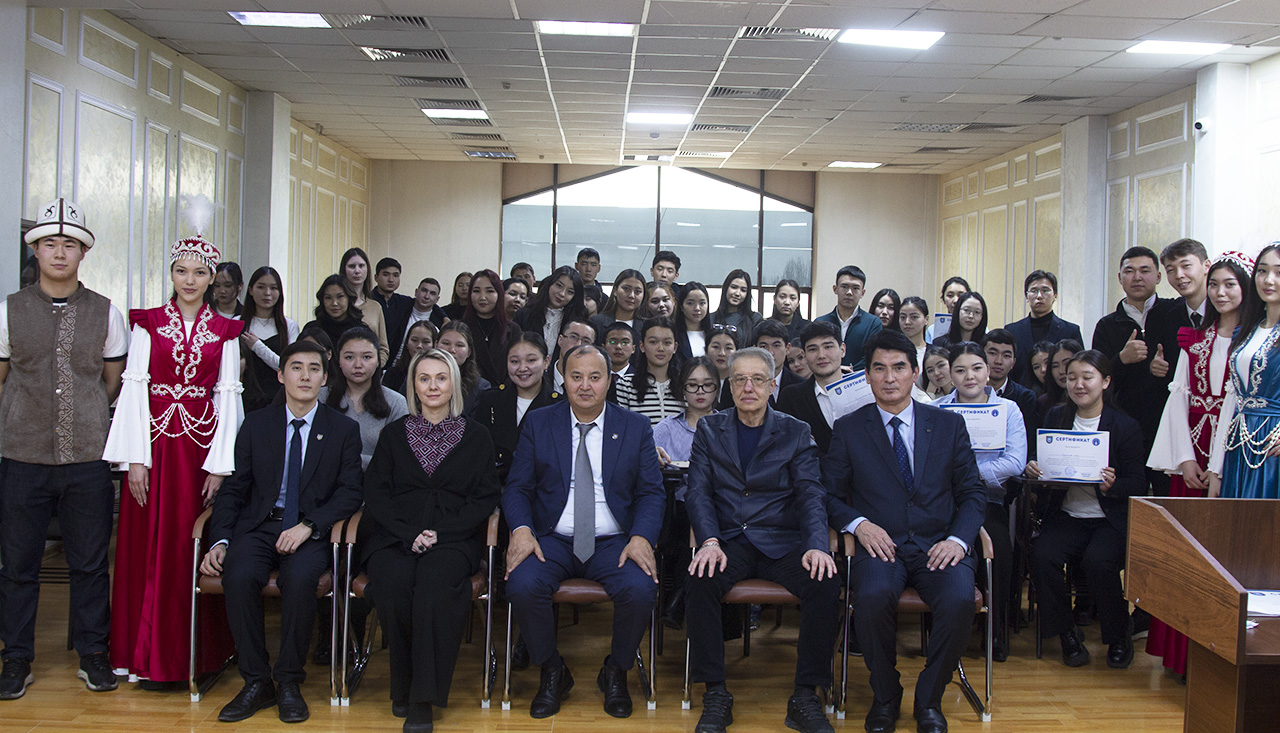
3rd year students of the specialty "public health" of the Faculty of Medicine and healthcare under the guidance of curator-adviser A. A. Belkhodzhayev held a curatorial hour on the topic Sustainable Development Goals. Bekarys Seisembekov presented his report as a speaker. Students of the 3rd year discussed topical topics and shared their thoughts.
Energy is the foundation of economic growth, as it is used to produce goods, provide services, and innovate. At the global level, it plays a key role in the development of industry, agriculture, science and technology. Without energy, modern life, including access to information, medicine, transportation and communications, would be impossible. Its sufficient and sustainable production is important for the quality of life, progress and stability of mankind. But fossil energy sources are dangerous because their combustion is the main source of greenhouse gases contributing to climate change, and also pollutes the air with toxic substances, causing respiratory and cardiovascular diseases. The extraction of oil, gas and coal destroys ecosystems, pollutes water and soil, depletes non-renewable resources and creates risks of disasters such as explosions or oil spills. This is compounded by economic instability, dependence on price fluctuations and social conflicts around resource extraction, which makes fossil fuels not only environmentally harmful, but also socially and economically risky. Kazakhstan is actively developing low-cost and clean energy, focusing on renewable sources (solar, wind, hydropower) and planning the construction of a nuclear power plant (NPP) as part of a strategy for the transition to a low-carbon economy. The concept of a “green economy” stipulates that by 2050 50% of energy will be produced from renewable sources, and carbon neutrality should be achieved by 2060. Major projects have already been implemented, including solar and wind power plants, as well as the modernization of hydropower. Kazakhstan actively attracts foreign investment through auctions and special tariffs for renewable energy projects, improves legislation in this area and cooperates with international organizations. In parallel, the country is considering the construction of its first nuclear power plant, which is due to the wealth of uranium reserves and the desire to reduce its carbon footprint.
